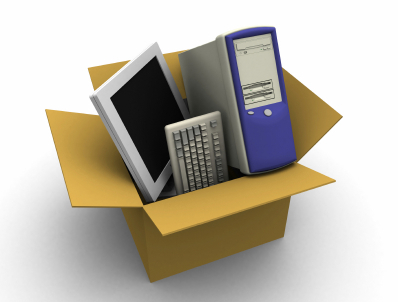With last week’s official announcement from Ninetendo that they have stopped production of the Wii console, we thought it would be a good idea to provide everyone with some tips for the storage of electronics. After all, you may find you don’t play your Wii nearly as often anymore, but in a few years you’ll no doubt be feeling the pangs of nostalgia. Just imagine how disheartening it would be for you at that moment to find your old Wii can’t be played anymore because you didn’t store it properly.
Now it doesn’t matter if it’s a laptop computer, flat-screen television, stereo system or a video game console; electronics are among the most delicate, and often costly, things a person owns. If you’re in a spot where you need to store your electronics, maybe you’re studying abroad or in the process of moving, there are a few basic guidelines you absolutely must follow to ensure your gear will still be operable when it’s time to unpack.
The first thing you’ll need to do is pick your storage spot carefully. Electronics typically aren’t designed to stand up to extremes in temperature or humidity. You’ll want to find a clean, dry spot outside of direct sunlight. Your best bet might be to rent a climate-controlled storage unit. By maintaining constant levels of heat, a climate-controlled unit is able to reduce those extreme levels of hot and cold that can wreck havoc on electronic devices.
Prepare Your Items for Storage
Wipe down your gear before it goes into storage. Removing any dust or grime will significantly reduce the chances of your scratching screens during transportation. Dust and dirt can also lead to static-electricity related issues or advance the build-up of mold.
Detach all removable wires and cables before packing up your gear. Separate the wires of each component. Make sure each set of cables stays together with electrical tape, cable ties or plastic bags. Label each of wires/cables and store them along with your electronics so you’re not searching for them when it’s time to unpack.
You’ll want to remove all batteries from your small electronics to eliminate the chance of any damage being done by leaking battery fluid. If you decide to discard the batteries, consult your local electronics store for information on environmentally clean battery disposal.
Double Check Your Electronics
CD’s, DVD’s, video tapes and cassettes should be removed from any electronics prior to storage. If you are storing media, it should be placed in an airtight, waterproof plastic crate. If you’re storing a computer, the built-in hard drive should be backed up, with at least one back-up being stored somewhere outside of the storage unit. The last thing you need is to lose everything on your computer.
If you haven’t saved the original packaging your electronics first came in, purchase sturdy, plastic crates for your gear. Use the same size brand and size of plastic crate to make stacking of crates easier. Wrap each component in cotton sheets or pillow cases. Avoid using plastic wrap as this won’t allow for air flow around your individual components and that can allow for the buildup of moisture that can be deadly to electronics. Fill any open space in your plastic crates with packing peanuts to prevent shifting during transportation. All crates should be clearly marked to make finding a particular item easier. Crates should be stacked according to weight, with the heaviest box on the bottom and so forth. This will reduce the chance of boxes collapsing and damaging your electronic gear.
Most of us probably can’t imagine being without our electronic devices long enough to need storage tips, but if you are ever in that position you want to do it right. Following these tips will help ensure your gear is ready to go when you are.


